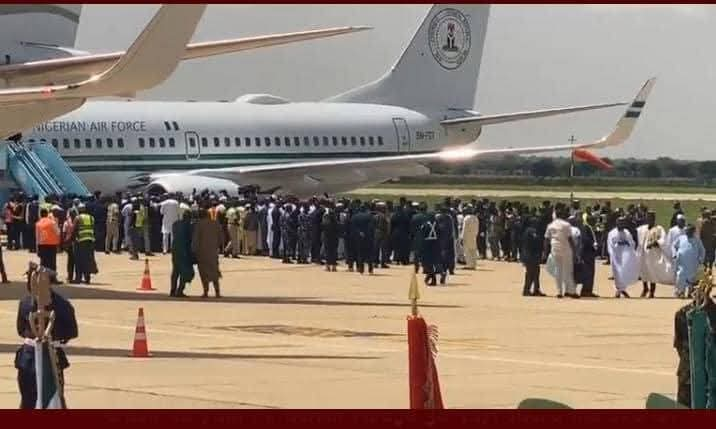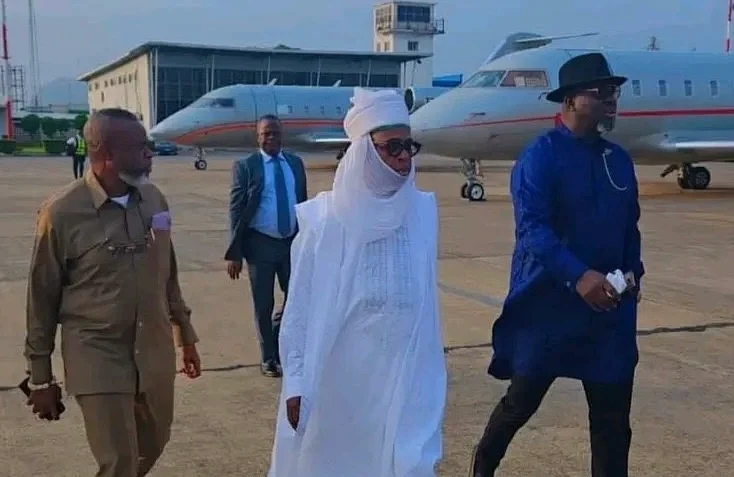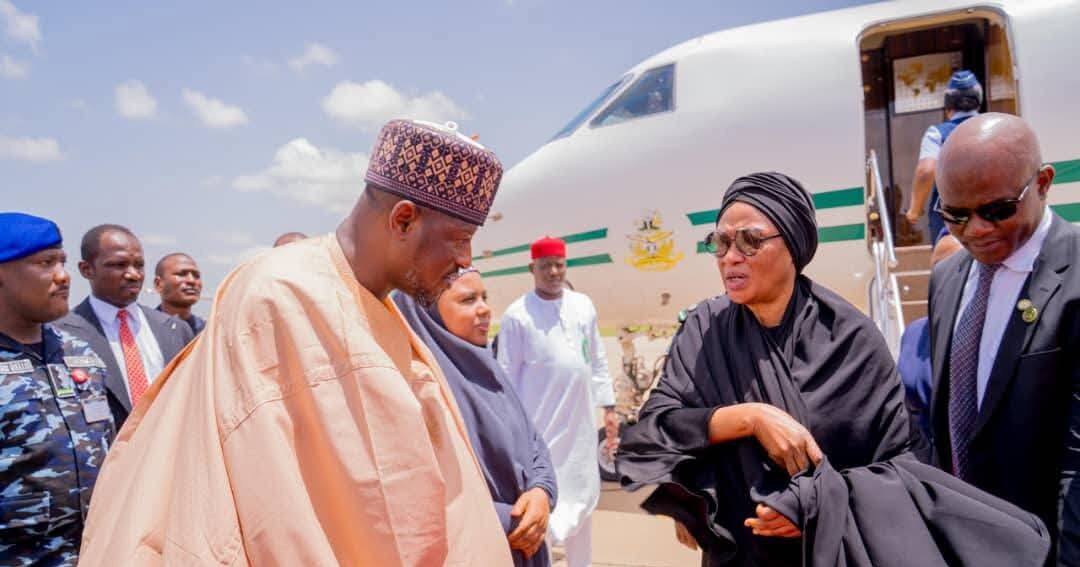The fate of Vice President Yemi Osinbajo who President Muhammadu Buhari once described as a loyal deputy was hanging in the balance last night.
Prof. Osinbajo has been more than just a number two; he has been the poster boy of the administration.
A man of intellectual depth, Osinbajo speaks eloquently about the administration’s economic policies.
But on Monday, the Presidency announced the replacement of the Economic Management Team (EMT), which Osinbajo chairs, with an Economic Advisory Council (EAC), to be chaired by Prof Doyin Salami.
Other members of the new body are Dr. Mohammed Sagagi (Vice-Chairman), Prof Ode Ojowu, Dr Shehu Yahaya, Dr Iyabo Masha, Prof Chukwuma Soludo, Mr Bismark Rewane, and Dr Mohammed Adaya Salisu (Secretary).
Special Adviser to the President on Media and Publicity, Mr Femi Adesina, said the advisory council “will be reporting directly to the President”.
Barely 24 hours after constituting the EAC, there is disquiet within the government and the ruling All Progressives Congress (APC), over alleged plans to relocate some top aides of the Vice President from the Presidential Villa to some Ministries, Departments, and Agencies (MDAs).
The developments fueled the claims that some forces were out to “curtail” the VP’s powers by excising some agencies under his supervision.
Deepening the fears was the alleged memo from President Muhammadu Buhari directing the Vice President to henceforth seek presidential approvals in the running of the agencies under his supervision.
But Osinbajo denied any rift in the Presidency.
He said agencies under his supervision are acting constitutionally.
A statement by his spokesman Laolu Akande said: “Our attention has been drawn to a sensational report by The Cable which claims that His Excellency, President Muhammadu Buhari, has directed Vice President Yemi Osinbajo, SAN, to seek approvals for agencies under him.
“The report suggests, falsely, that agencies under the supervision of the Vice President do not normally comply with established rules where presidential approvals are required.
“This is obviously misleading and aims only to plant seeds of discord in the Presidency while attempting to create unnecessary national hysteria.
“The agencies in question are established by law and the Vice President has always insisted on due compliance with the enabling statutes and other established regulations.
“Depending on the particular scope of activity in question, agencies may require management approval only, at the level of the Director-General or Chief Executive Officer. In this category fall the great majority of their day-to-day activities.
“However, other activities, or procurements, with a value exceeding a certain threshold, require Board approval. These may get to the agency Board chaired by the Vice President.
“In a few cases where Presidential approval is required, the Director-General must seek such approval from the President, through the Vice President.
“These rules have always guided the activities of statutory agencies and the ones under the Vice President’s supervision have always been so guided.”
The Vice President said he never failed to comply with the law.
He cautioned against moves to cause disaffection in the presidency especially between him and the President.
He said he has an effective and mutually respectful relationship with the President.
He said: “To claim that in the first term of the Buhari administration, agencies of government have not been complying with the provisions (of getting final approvals from the President) is false, and the attempt to suggest the Vice President’s complicity in such irregularities is simply mischievous and reprehensible.
“The effective and mutually respecting relationship between the President and the Vice President is well known to Nigerians and it is futile to insinuate otherwise.
“Even though the Vice President has a statutory role as Board Chairman of some government agencies under his office, with appropriate approval limits, which often do not include contract approvals; it is ludicrous to even insinuate that a Board Chairman approves contracts.
“Evidently, the Federal Executive Council, which oversees Federal ministries and agencies of government, is chaired by the President, and it is in its purview to approve or ratify award of contracts within the prescribed threshold.
“The Vice President remains committed to the service of his fatherland and will continue to do so despite the purveyors of fake news. We urge media organisations, as gatekeepers to uphold truth, balance, fairness and objectivity in their reports.”
The agencies being supervised by the Vice President are the National Emergency Management Agency (NEMA), the National Boundary Commission (NBC), the Border Communities Development Agency (BCDA) and the Social Investment Programmes (SIP).
It was gathered that the SIP may now operate under the newly created Ministry of Social Development, Humanitarian Affairs & Disaster Management.
A top source said: “A proposal has now been forwarded to President Muhammadu Buhari seeking his approval for the dispersal of most of the Presidential advisers and aides in the Vice President’s office outside the Presidential Villa.
“If the President consents, all the VP’s key aides and advisers covering a variety of briefs would then be posted out of the Villa to the MDAs.
Sources last night spoke of an alleged plot to “muzzle” the Vice President ahead of permutations for 2023.
But a government source said: “I am not aware of political animosity in the Presidency. The reality is that the resources available to the government are shrinking and we have to realign some MDAs within the scarce resources.
“Go and read the report of Ahmed Joda transition committee in 2015 when this government was being put in place. Restructuring bureaucracy has no tribal or religious colour.
“No matter what you do, no one can put a wedge between the President and the Vice President. They have mutual respect for each other.”
Observers believe there will be conflict in the roles of the EAC and the statutory National Economic Council (NEC), headed by the VP.
The constitution gives NEC the power to “advise” the President on economic affairs.
Section H of Part 1 of the Third Schedule to the 1999 Constitution says: “The National Economic Council shall comprise the following members – (a) the Vice President (b) the Governor of each state of the Federation; and (c) the Governor of the Central Bank of Nigeria established under the Central Bank of Nigeria Decree 1991 or any enactment replacing that Decree.
“The National Economic Council shall have the power to advise the President concerning economic affairs of the Federation, and in particular on measures necessary for the coordination of the economic planning efforts or economic programmes of the various governments of the Federation.”
Presidential spokesman Adesina said in the statement announcing the formation of the EAC that it “will advise the President on economic policy matters, including fiscal analysis, economic growth and a range of internal and global economic issues working with the relevant cabinet members and heads of monetary and fiscal agencies.
He added: “The EAC will have monthly technical sessions as well as scheduled quarterly meetings with the president. The chairman may, however, request for unscheduled meetings if the need arises.”
A source, who spoke in confidence, said: “We see the two bodies as one with EAC comprised of economic experts and NEC composed of political leaders. Even the advisory council has no constitutional backing.”
Another APC chief said: “We are worried because the advisory council is suggesting that the APC administration has run out of ideas such that we are now recruiting some experts used by the opposition Peoples Democratic Party (PDP) in the past.”
Text (Excluding Headline) courtesy of The Nation)

 BIG STORY4 days ago
BIG STORY4 days ago
 BIG STORY5 days ago
BIG STORY5 days ago
 BIG STORY1 day ago
BIG STORY1 day ago
 BIG STORY5 days ago
BIG STORY5 days ago
 BIG STORY5 days ago
BIG STORY5 days ago
 BIG STORY13 hours ago
BIG STORY13 hours ago
 BIG STORY2 days ago
BIG STORY2 days ago
 BIG STORY3 days ago
BIG STORY3 days ago
























